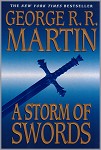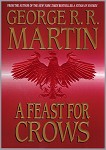Smallfolk / Commoners |
| Houses of Westeros - Independents | |||
| Friday, 11 June 2010 21:25 | |||
|
The politics of the noble lords are played on the backs of the smallfolk whom they rule. This is true not only in Westeros, but extends to the lands beyond the narrow sea. Wherever men rule by tradition and name, the whole of their power is rooted in the control of the lives of others. Without smallfolk or commoners, the feuds of lords in Westeros, khals on the Dothraki sea, or magisters and merchant princes in the Free Cities and beyond would be personal matters alone. Instead, they flare up into conflagrations that can bring down entire realms. In wartime, the smallfolk are fodder for the battles of the great; in peacetime, they are the backs that toil to place food on the tables of their betters. A very few may climb higher than their lot, but it is a treacherous and difficult course. HistoryFor most smallfolk and commoners, life rarely changes except to be punctuated by the occasional war, plague, or famine. Smallfolk are the subjects who are ruled; they both make up the levies of great armies, and in turn work hard to feed such legions for their lords. The brunt of suffering from all great events falls on them, however, and there are few lords or powerful leaders who believe that it should be any different. PersonalityMost smallfolk in Westeros pray that their lives will be uneventful, wanting nothing better than to quietly bear a few children and die peacefully after a good life. They wish for endless, fertile summers and short, merciful winters. They are used to toiling through long days, raising crops, or thanklessly serving in some noble household. Those who desire more out of life, whether adventure or fame or advancement, might pursue the vagabond life of mummers, singers, or even sellswords. Among the Free Cities, there is a stronger merchant class, leading to an enterprising society of wealthy freemen. The people of the Free Cities are viewed with suspicion in other lands, however, for they are believed to be capable of selling their own mothers if it will bring them sufficient coin or advantage. The citizens of the Free Cities know that even the poorest among them can rise to great heights by luck and skill, giving them ambition unmatched by any Westerosi smallfolk. Conversely, while slavery is forbidden in Westeros, it is not unknown in some of the Free Cities and the lands to the east — illustrating a fate crueler than many Westerosi serfdoms. On the Dothraki sea, life is a harsh contest between rival khalasars. Dothraki men expect to die in battle. They are known for their ferocity and cruelty, to foes and even to their own women. Superstition plays a great part in daily life, as does suspicion of outsiders. A Dothraki’s life may seem simple to “civilised peoples,” but it can also be rich with myth, personal history, and oaths stronger than blood. They are fearless and unconcerned with over complicating life, and approach their days with a fierce joy. OccupationsIn Westeros, smallfolk provide all manual labour, whether on farms, ships, or in cities. Some smallfolk make their way as merchants and may do very well, but the nobility carefully restricts their influence. Other commoners become soldiers or guardsmen, sometimes wearing livery but other times selling their swords. The Faith is filled with poor brothers and septons who have come from meaner existences. Similarly, the red priests of the Lord of Fire largely come from the commoners throughout the Free Cities, as do priests of other faiths in the civilised lands on the eastern continent. Those who desire wealth, however, turn towards the life of trade. Even bravos and sellswords dream of great wealth and a place among the councils of the merchant princes. The Dothraki are simpler. Dothraki men are expected to be warriors. If they are crippled or too old to fight, they are given only the barest sustenance to live. In battle, they can win great honours, though only a few can rise to the top of a khalasar. Women keep the tent fire burning, bear children, and little else. After battles, children are taught the ways of the battlefield, such as scavenging and retrieving usable arrows from corpses. DestinyMost smallfolk or commoners lead uneventful lives. They toil unceasingly, living or dying as fate dictates. Fortune, however, can lead a very few to rise to grander heights. In Westeros, a chance deed in battle may win knighthood, or at least a permanent place in a lord’s household. Wealth can be won by luck or skill, until a man is wealthy enough that even nobles must listen when he speaks. The same can be said in the Free Cities or the lands beyond, where powerful merchants are almost lords themselves, commanding tremendous wealth, swords, ships, and their own people. Among more warlike societies, such as the Dothraki, combat is the chief arbiter of Social Status. An honoured warrior may become a bloodrider to a khal, considered blood of his blood. Others may be named kos, aiding in the rule of the khalasar. From ko to khal is not a large step among the Dothraki, where death in battle or by treachery is far from unknown. TraitsFEATS: Able Body; Dothraki Born; Dreams; Giant’s Blood; Keen Mind; Noble Spirit; Silver Tongue; Stubborn; Tradesman; Unknown Heritage SOCIAL STATUS: Rank 0 (Respected Smallfolk). GMs may grant experienced or special characters (such as godsworn or maesters) with no house Affiliation a higher level of Social Status, up to Rank 3 (although this may effect ECL). Characters may instead be outlaws and have pariah status (see Ranks -1 and the Outcast Defect), or gain status through game play (see Raised Status Feat).
|
|||
| Last Updated on Saturday, 11 June 2011 21:35 |






















